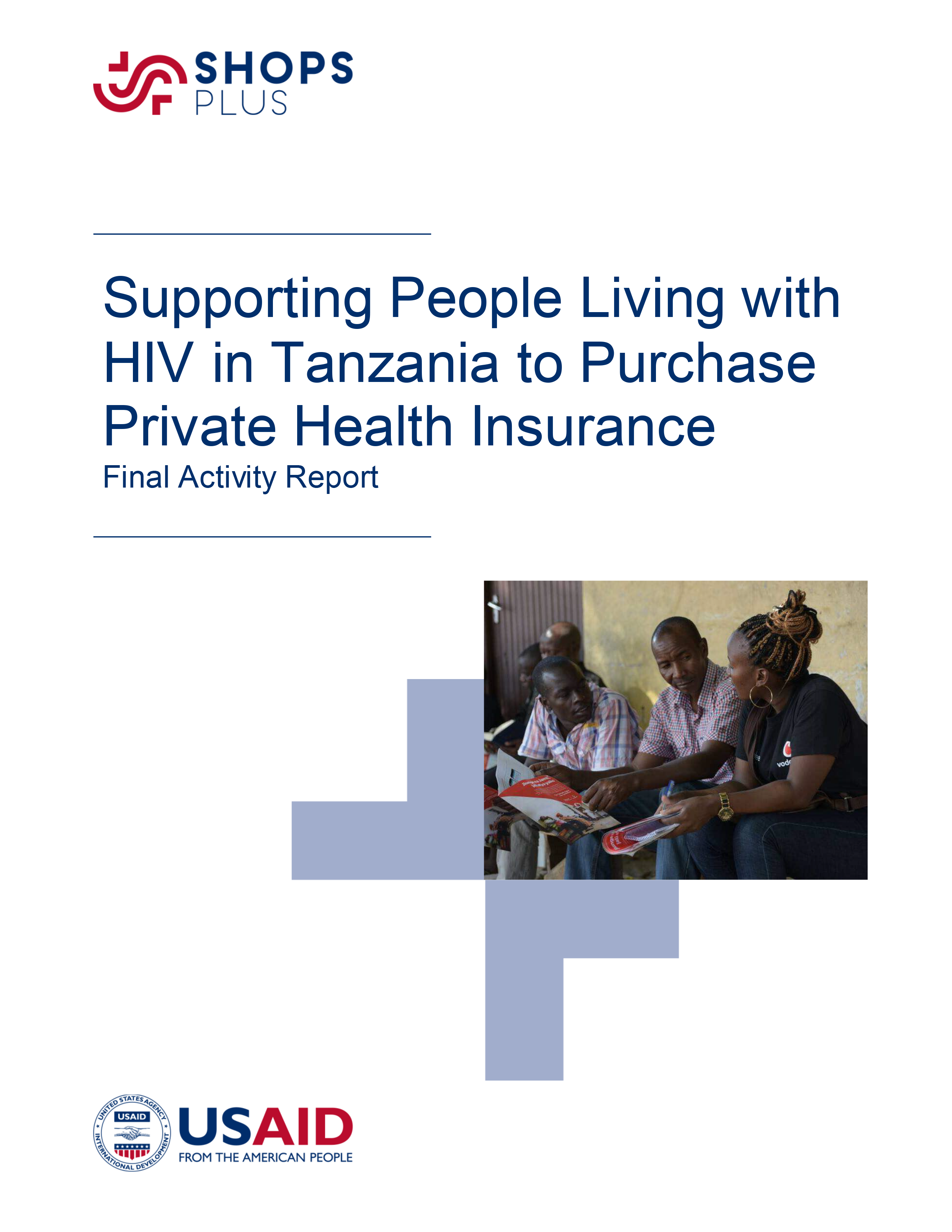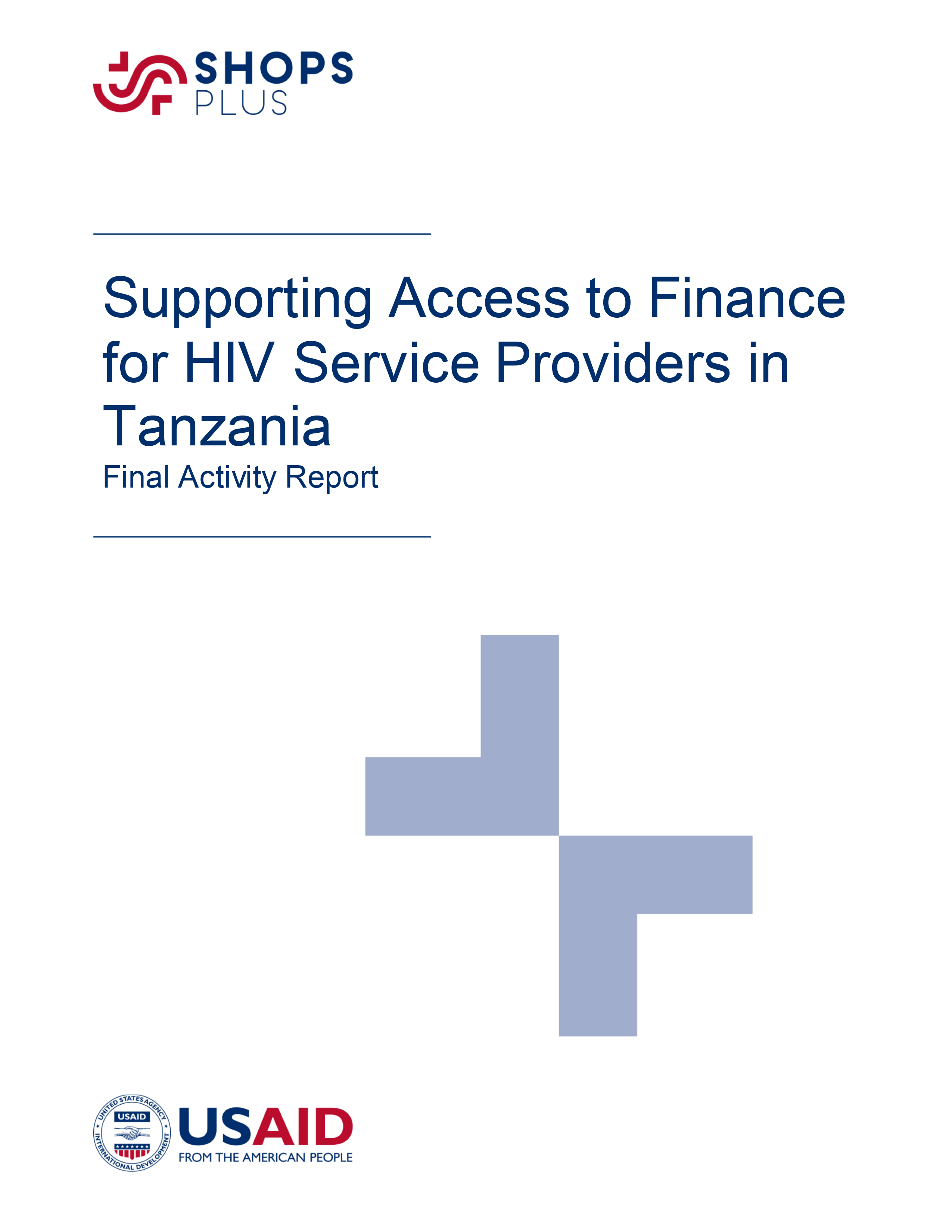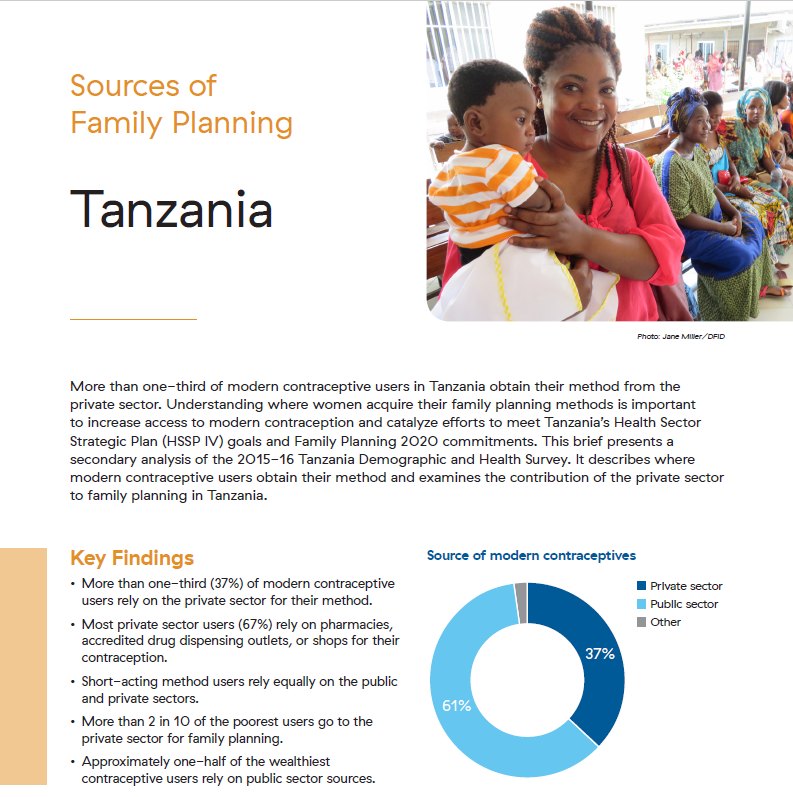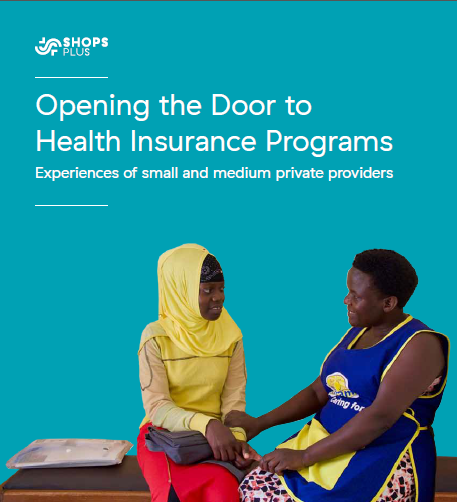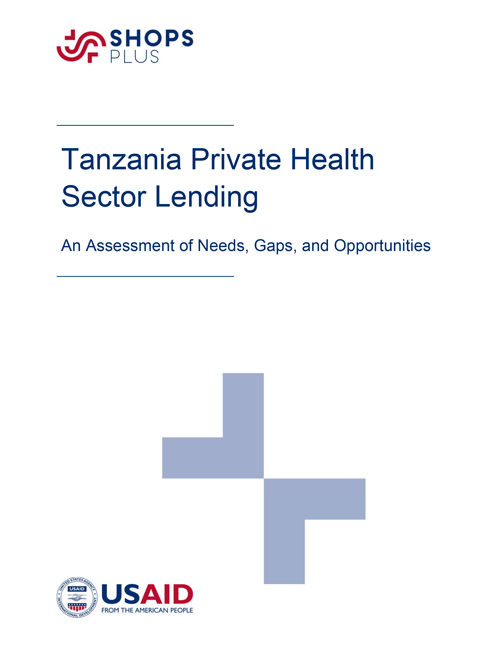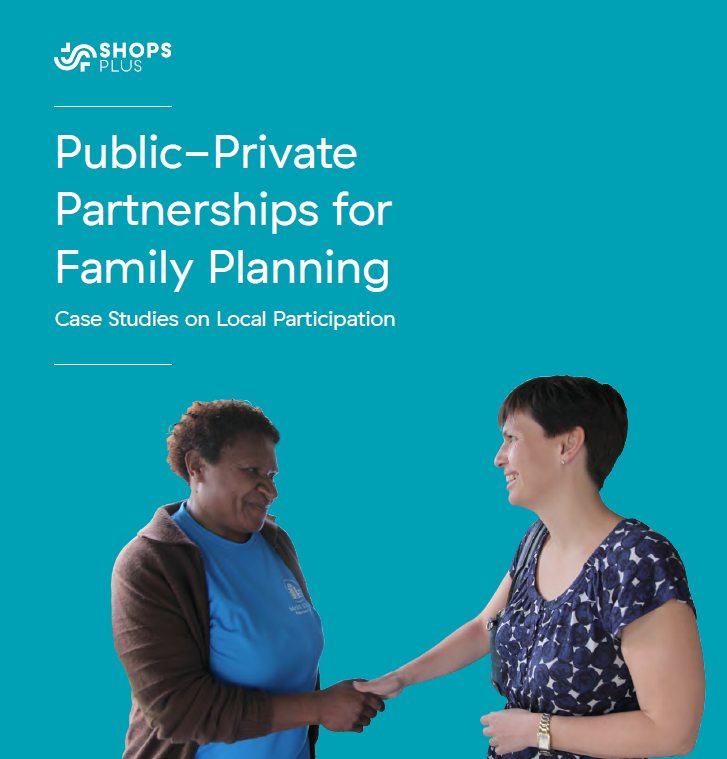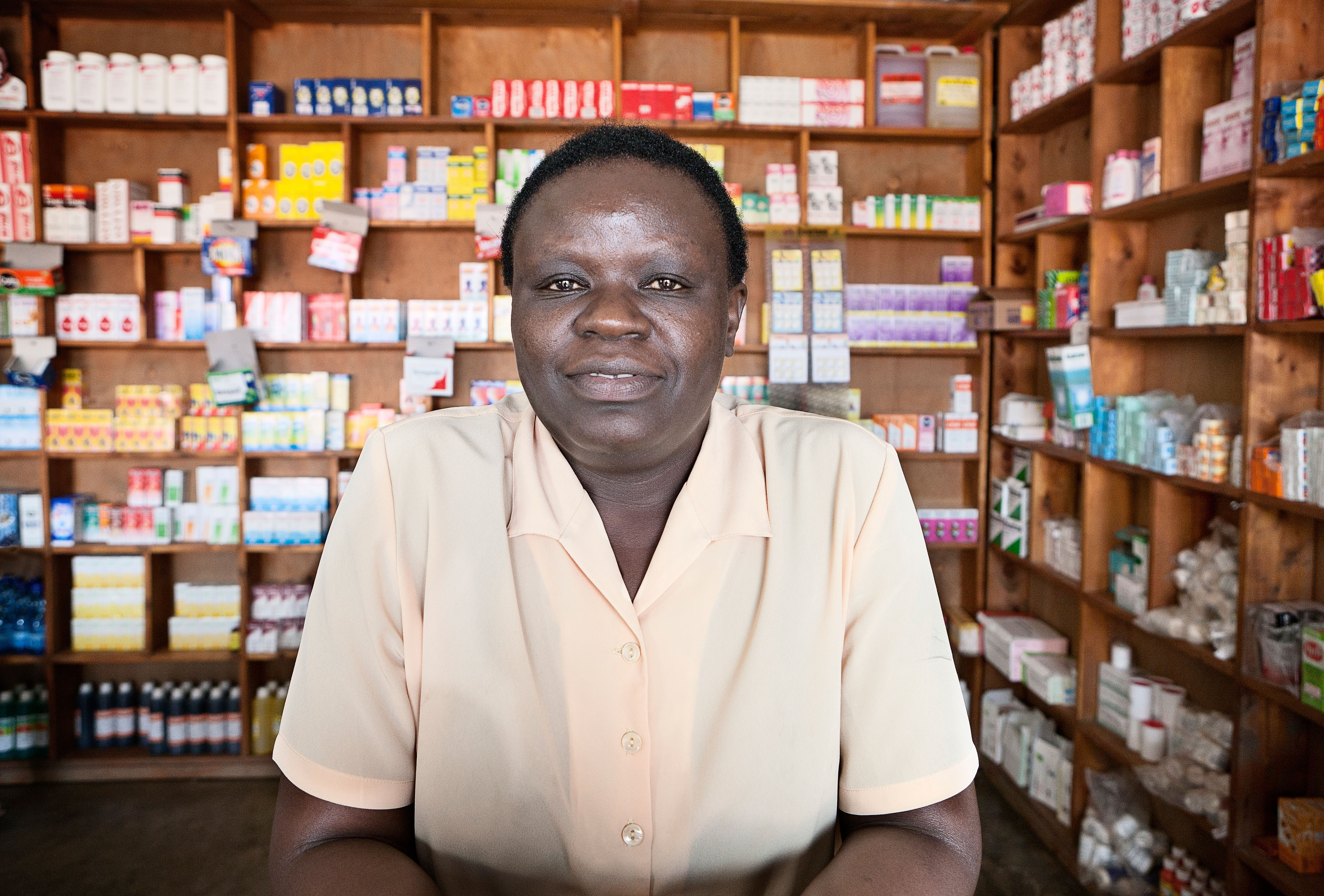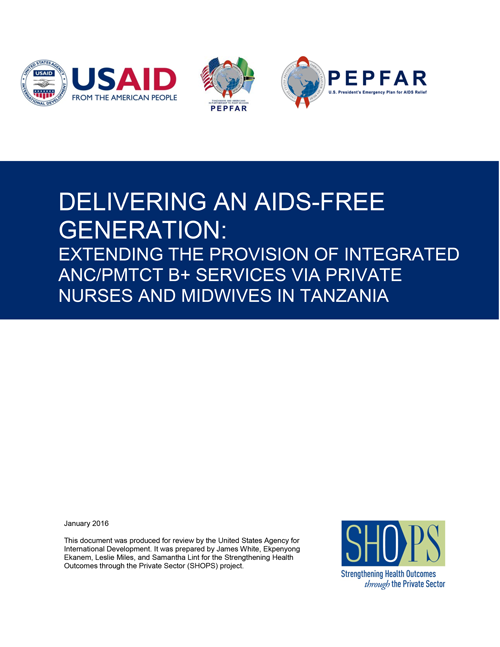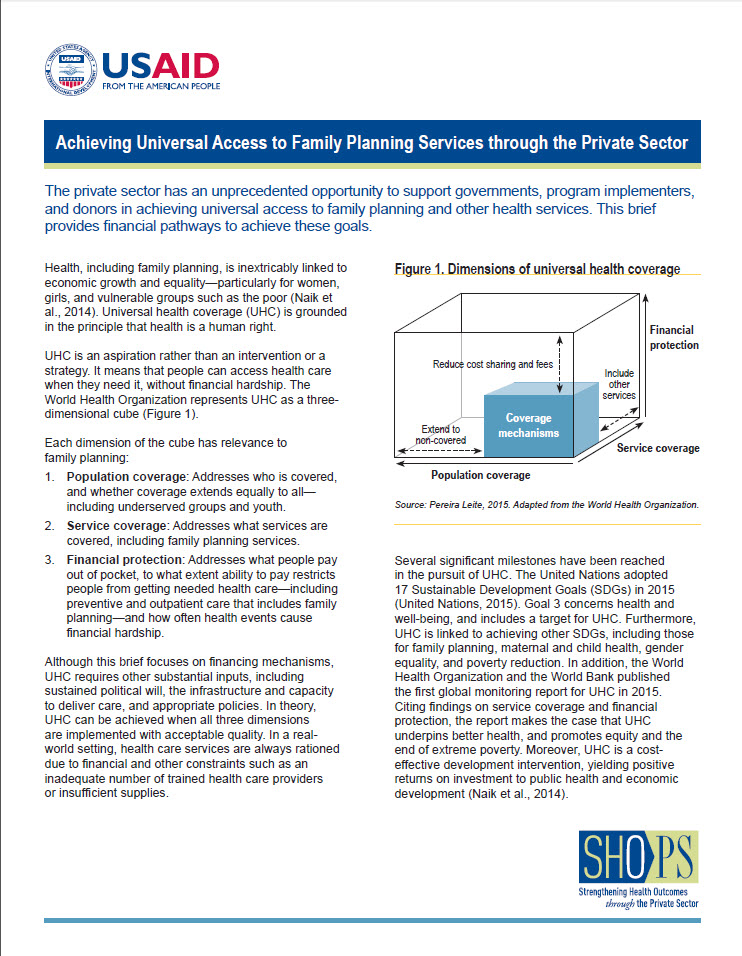
Resource Library
Supporting People Living with HIV in Tanzania to Purchase Private Health Insurance
Jamii is a cashless and paper-less mobile-enabled private health insurance product in Tanzania. Jamii insurance provides an opportunity for a low cost entry to health insurance among uninsured populations (including people living with HIV) who are well suited to the private sector. USAID/Washington’s Office of HIV and AIDS engaged the SHOPS Plus project to partner with Jamii to increase private health insurance coverage among people living with HIV as a means of increasing access to HIV services in the private health sector. SHOPS Plus provided technical assistance to complement key partner and other donor support for a six month pilot implementation of Jamii education, sales and distribution activities with a focus on people living with HIV. This report provides the results and findings from the pilot activity.
Resource Type : Report
Country : Tanzania
Year : 2019-03-20T12:00:00
Language : English
Project : SHOPS Plus

Resource Library
Supporting Access to Finance for HIV Service Providers in Tanzania
A Development Credit Authority guarantee is one strategy to promote access to finance among health facilities. In Tanzania, the USAID mission has been supporting CRDB bank through a Development Credit Authority agreement with a ceiling amounting to $2.8 million in loans available for the health sector. Under the Tanzania field support program, SHOPS Plus conducted an access to finance assessment in 2016. The team identified several opportunities and constraints to improving financing in the private sector and developed several recommendations for follow-on technical assistance. This reports provides details and lessons learned from those activities.
Resource Type : Report
Country : Tanzania
Year : 2019-03-20T12:00:00
Language : English
Project : SHOPS Plus

Resource Library
Sources of Family Planning: Tanzania
More than one-third of modern contraceptive users in Tanzania obtain their method from the private sector. Understanding where women acquire their family planning methods is important to increase access to modern contraception and catalyze efforts to meet Tanzania’s Health Sector Strategic Plan (HSSP IV) goals and Family Planning 2020 commitments. This brief presents a secondary analysis of the 2015-16 Tanzania Demographic and Health Survey. It describes where modern contraceptive users obtain their method and examines the contribution of the private sector to family planning in Tanzania.
Resource Type : Brief
Country : Tanzania
Year : 2018-11-14T14:00:00
Language : English
Project : SHOPS Plus

Resource Library
Sources for Sick Child Care in Tanzania
Both the public and private sectors are important sources of sick child care in Tanzania. Understanding if and where sick children are taken for care is critical to improve case management interventions. This brief presents a secondary analysis of the 2015–16 Tanzania Demographic and Health Survey to examine where treatment or advice is sought for sick children who experienced at least one of three treatable illnesses: fever, acute respiratory infection, or diarrhea. These illnesses represent some of the leading causes of death in children under five years old.
Resource Type : Brief
Country : Tanzania
Year : 2018-08-08T10:00:00
Language : English
Project : SHOPS Plus

Resource Library
Opening the Door to Health Insurance Programs: Experiences of Small and Medium Private Providers
Small and medium private health care providers are valuable partners in scaling up health financing programs that support universal health coverage. However, it is often challenging for them to participate because they have fewer resources and the process can be arduous and costly. The requirements and processes for these providers to participate in health financing programs, and the ease (and pitfalls) of doing so have not been well documented. This brief presents the experiences of small and medium providers who participate in health financing programs, particularly government-sponsored programs. It cites examples from the Dominican Republic, Ghana, India, Kenya, the Philippines, and Tanzania.
Resource Type : Brief
Country : Ghana, India, Kenya, Philippines, Tanzania
Year : 2018-05-22T10:00:00
Language : English
Project : SHOPS Plus

Resource Library
Tanzania Private Health Sector Lending
In August 2016, SHOPS Plus conducted a needs assessment of private health providers in Tanzania. The overall objective was to evaluate their business and financial management training needs and to gain an understanding of their financing requirements.
This report documents providers’ business management skills, current sources of financing, and financial institutions' attitudes toward the private health sector. The authors include several recommendations to improve lending to private providers in Tanzania.
Resource Type : Report
Country : Tanzania
Year : 2018-03-27T17:00:00
Language : English
Project : SHOPS Plus

Resource Library
Public-Private Partnerships for Family Planning: Case Studies on Local Participation
The value of local participation is presented in five case studies on public-private partnerships for family planning: Marie Stopes Papua New Guinea, Sehat Sahulat Card in Pakistan, Sayana Press implementation in Senegal, Wazazi Nipendeni in Tanzania, and accredited drug dispensing outlets in Tanzania. The publication begins by discussing partnership mechanisms and the types of partners. The authors consider the experience of PPP unit representatives that worked on health issues, including family planning. The primer closes with a discussion about ongoing challenges and opportunities for these partnerships.
Resource Type : Report
Country : Pakistan, Senegal, Sénégal, Tanzania
Year : 2017-04-05T09:00:00
Language : English
Project : SHOPS Plus

Resource Library
Availability of HIV Rapid Diagnostic Tests Over the Counter
SHOPS conducted assessments of over-the-counter availability of HIV rapid diagnostic tests through private pharmacies in Kenya, Malawi, Tanzania, and Uganda. The objective was to assess the extent to which the tests were readily accessible to and used by consumers for self-testing, in lieu of facility-based HIV testing services. The assessment revealed several findings regarding HIV rapid diagnostic tests, including their regulatory oversight, availability, source, demand, and future role.
Resource Type : Report
Country : Kenya, Malawi, Tanzania, Uganda
Year : 2016-12-01T00:00:00
Language : English
Project : SHOPS

Resource Library
Delivering an AIDS-Free Generation: Extending the Provision of Integrated ANC/PMTCT B+ Services via Private Nurses and Midwives in Tanzania
The SHOPS project implemented an innovative service delivery intervention focused on rapid scale-up of PMTCT via Tanzania’s private health sector. The intervention targeted the three priority elements outlined in the MOHSW’s national EMTCT plan: addressing severe human resource shortages in the health sector, promoting public-private partnership and engaging the private health sector, and scaling up an integrated community-based ANC and PMTCT B+ service package. To address these diverse priorities, the SHOPS project implemented an intervention that emphasized engagement with Tanzanian partners at both the policy level and in community-based practice. The overall goal of the SHOPS intervention was to stimulate rapid scale-up of integrated ANC and PMTCT B+ services delivered via private nurses and midwives in underserved and high need community-based settings in Tanzania. This report details the SHOPS project's intervention methodology, outcomes, and findings.
Resource Type : Report
Country : Tanzania
Year : 2016-01-28T00:00:00
Language : English
Project : SHOPS

Resource Library
Achieving Universal Access to Family Planning Services through the Private Sector
The private sector has an unprecedented opportunity to support governments, program implementers, and donors in achieving universal access to family planning and other health services. This brief provides financial pathways to achieve these goals.
Resource Type : Brief
Country : Tanzania
Year : 2015-12-09T00:00:00
Language : English
Project : SHOPS
Pagination
- Previous page
- Page 5
- Next page


